Why Your Diet Should Be Wheat-Free
Before talking to my friend Isabel, who is a nutrition goddess, I ate wheat often. I was one of those people who thought whole wheat bread was the way to go!
After Isabel opened my eyes to what wheat is capable of, I immediately turned from wheat and have stayed away since. This small change did incredible things for my figure. I was finally able to shed belly fat, something that was incredibly tough for me to do in the past.
Below are Isabel’s reasons why wheat should be eliminated from your diet and I agree 100%. Being an RN and having seen such conditions first hand, I can say that changing the way we eat can do numerous benefits for your inner and outer self.
For starters…
The gluten contained in wheat products can cause or contribute to digestive disorders and joint problems. If you suffer with these conditions, a wheat-free diet may be cure or relieve your uncomfortable symptoms.
Here’s where I may get your attention…
Cutting wheat out of your eating plan can also help you shed those unwanted pounds. Wheat often times causes inflammation due to sensitivity, which will in turn make your body retain water and will contribute to weight gain.
Fun Fact…
Eating the wrong food can actually produce a temporary high, as such found in opioid drugs like morphine. After this feeling wears off, you crave the same food in order to get another euphoric experience again.
Wheat Substitutions
Millet is commonly used as a wheat substitute for both gluten-free and wheat free diets, as well as quinoa, brown rice, and sprouted grains. If you still want your carbs and who doesn’t, stick to these types of grains to see the best results in your health and weight.
- Millet
- Brown Rice
- Sprouted Grains
- Quinoa
- Buckwheat
A wheat-free diet is often confused with a gluten-free diet. Although wheat products contain gluten, these two types of diets are not the same.
When eating wheat-free diet, you simply eliminate all foods that contain wheat. When you follow a gluten-free diet, you not only give up wheat but you also eliminate barley and rye.
Digestive Problems Caused By Wheat
Irritable bowel syndrome (IBS) can cause abdominal pain, bloating, gas, changes in bowel movements and cramping. People with IBS may be constipated one minute and have diarrhea the next. The urge to have a bowel movement can get so intense and is sometimes hard to control.
The symptoms of irritable bowel syndrome vary from person to person and they can come and go as they please. Gluten intolerance has been shown to produce or pronounce IBS symptoms. Since gluten is found in wheat, eliminating it from your diet can help reduce the symptoms.
You don’t have to have irritable bowel syndrome for wheat to cause digestive problems. Eating wheat can clog up the intestines and make digestion difficult. A wheat-free diet can promote a healthy digestive tract by allowing food to flow through easier.
Go Wheat-free and Drop a Few Pounds
Wheat is found in bread, pasta, baked goods, cereal, ice cream, gravies and other processed foods. These types of foods have no nutritional value and they make it near impossible for you to lose weight. On top of the empty calories you get when you load up on processed wheat products, you also ingest all kinds of unhealthy chemical additives that once again cause, among many other things, water retention.
When you kick wheat out of your diet, there’s nothing left to eat but lean meats, fish, poultry, fruits, beans, nuts, legumes and vegetables. These foods are nutrient-dense and lower in calories than processed foods. When you opt for healthier foods, you automatically reduce your caloric intake, so you have an easier time slimming down.
Eliminating Wheat Can Reduce Joint Pain
Gluten can hinder your body’s natural defenses against joint pain caused by osteoporosis or osteoarthritis. If you have either of these conditions, a wheat-free diet may help reduce discomfort. Also, when you suffer from joint conditions, being overweight will amplify the pain. The weight loss you experience from a wheat-free diet will take some of the pressure off of your joints and help ease pain.
Getting Started
When you’ve been eating wheat all of your life, the thought of eliminating it from your diet can be scary. If going wheat-free is difficult for you, take small steps. Start off by cutting your intake by half. After you do this for a while, continue to reduce the amount of wheat you eat. Before you know it, you’ll be wheat-free and on the path to better health. You will feel much better in no time and this will make the wheat eating habit, easy to replace.
Want to get healthy through what you eat? The Diet Solution Program can get you on the right path and keep you there. Isabel’s recipes are all friendly to a wheat-free diet.
Isabel is genius registered dietician that has helped over 25 000 struggling men and women lose the weight they thought they could never lose. Isabel’s cutting edge and completely different approach to nutrition is what sets her apart from all the rest. This approach has created results for so many once frustrated dieters. Her strategies work, hands down, as long as her simple principles are followed.
See here for yourself.
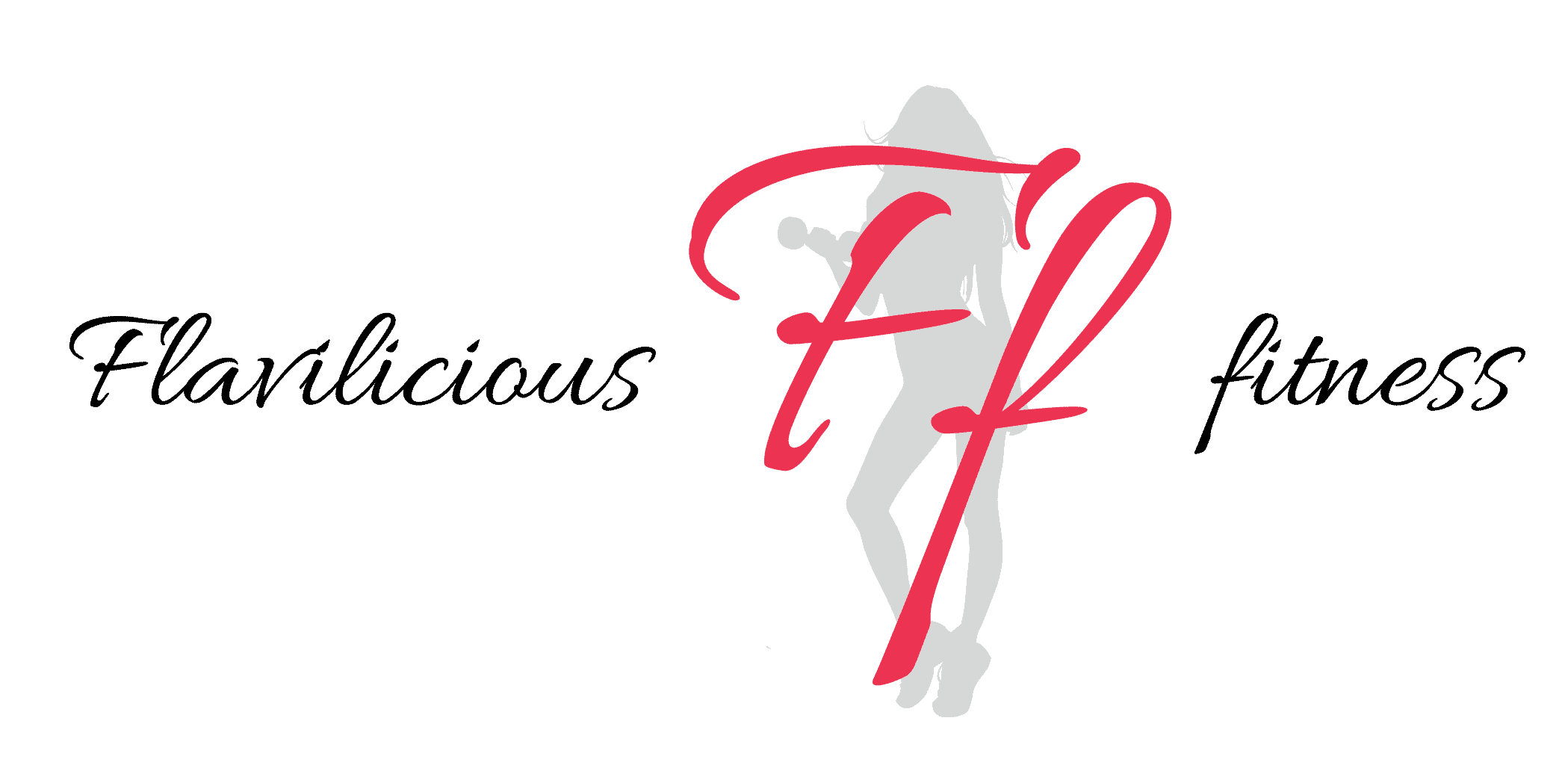

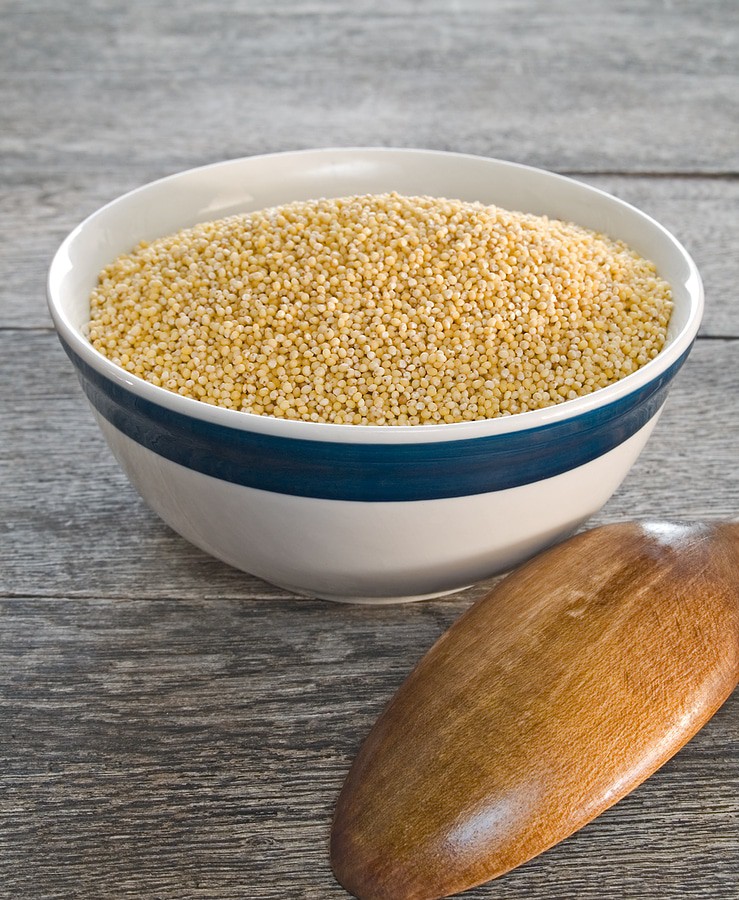
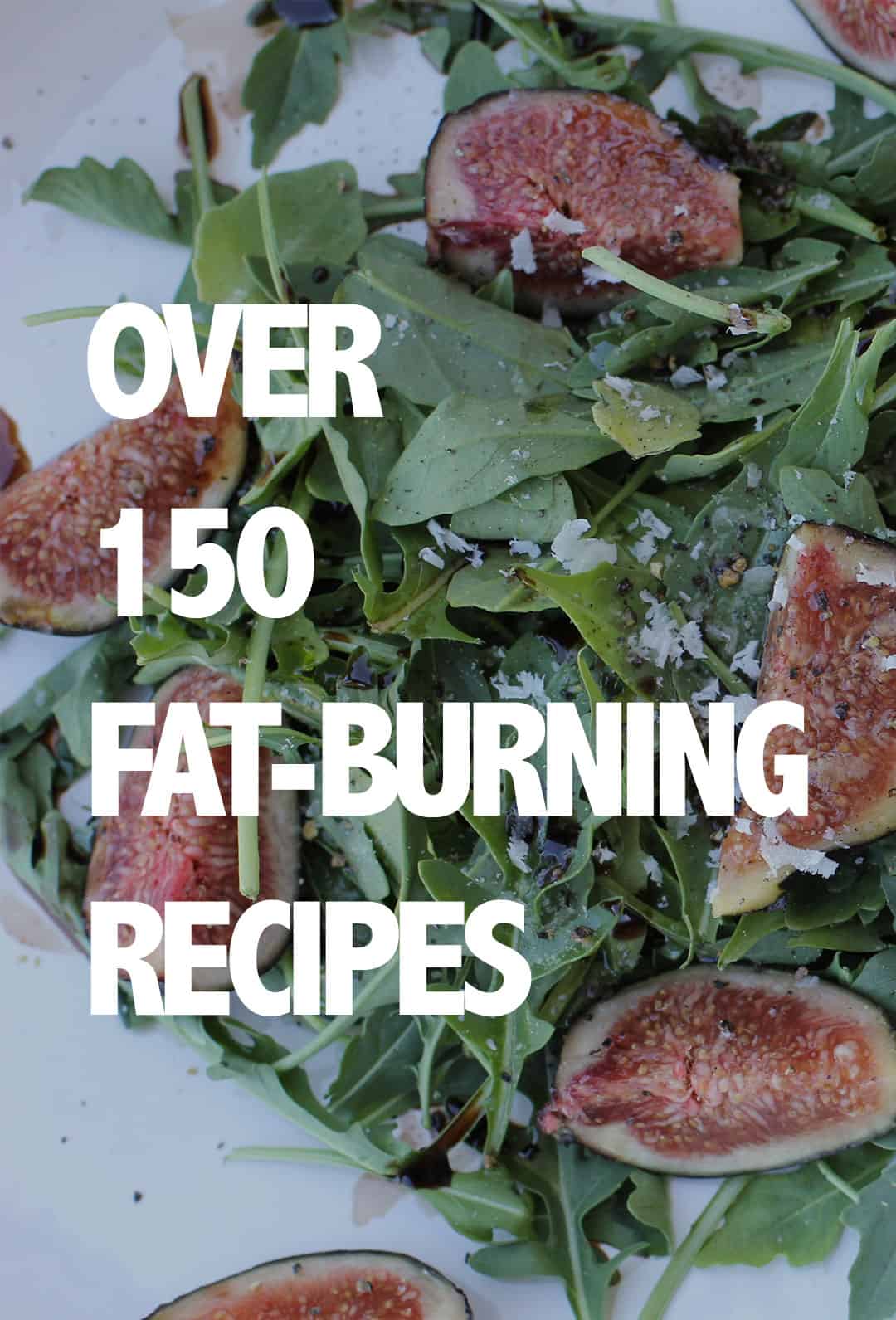
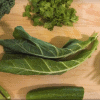
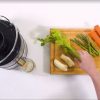
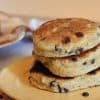
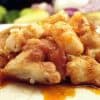

Love this blog! I try telling people this all the time and everyone looks at me like I’m crazy. I cut wheat 2 years ago and have noticed incredible changes in my midsection. I’m gonna share this page for sure….thanks, Flavia!
I have cut out flour products, but do eat the Ezikiel sprouted grainbread only. It is not wheat/gluten free, but is it one of those ‘safe’ wheat products?
Great question, I had this myself when I was introduced to Ezekiel cereal. It is not wheat-free or gluten-free BUT it contains sprouted whole wheat which is usually tolerated better. This is because in the sprouting process, gluten is broken down, which makes the wheat more easy to digest. If you feel fine after eating this, you may be able to tolerate small amonts of wheat. I wouldn’t have this everyday. You should switch up your sources and because we aren’t eating a lot of carbs (right?), you will only be eating this around once a week. I do cut this out when I am trying to lose weight.
AND, it’s all organic with no preservatives etc. and there isn’t a huge amount of wheat.
Hi
Great blog post Flavia another point I want to make about Wheat is that is spikes you insulin 10x faster than table sugar which is quite frightening so which interms for fat loss and building lean body mass (LBM) is a big no no you only need to spike your insulin post workout not any other time of day so their is another reason why starting a wheat free diet is going to help you achieve your fitness and training goals. Girls do what flavia says and stay away from food that contains wheat for good and see the changes to your body.
One of the best blog posts I’ve read Flavia! Any ladies out there wanting their boyfriend or husband to lose a few pounds get them on a wheat free diet too… works wonders for guys as well.
For sure! Thanks Kevin
Wow great article Flavia!
I’ve always eaten multigrain bread thinking it’s much better for me…
Can I ask, is Rye Bread an okay substitute? I haven’t gone home and looked yet, but I’m assuming the ingrediants list will just say “wheat” if there is wheat content in the product. Is this correct?
Thanks 🙂
Yes, if it says wheat there is wheat content. BUT, it is difficult to know because a lot of consumers try to hide the fact. Rye bread is better than most, but it will still have a lot sugar…unless you make it yourself. Also, rye contains gluten which a lot of people are also sensitive too. Amaranth flour is a good substitute!
Eek!
What bread do you eat?
I agree with Flavia that gluten lurks in ingredients not always labeled with wheat. It’s overwhelming at first, but look at all ingredients and educate yourself on what they are. Besides the obvious breads and cereals, common places to find wheat/gluten are canned soups, sauces (soy sauce/teriyaki sauce), store-bought salad dressings, meats with filler, seasonings. I switched from one taco seasoning packet which contained wheat to another brand.
I was at a restaurant and thought I was safe with an omelette… I checked w/the server first and found out they used some sort of ready-made liquid egg concoction which had some wheat in it!
I am not celiac but have been on a gluten free diet for over a yr (doctor recommended for thyroid reasons). Recently, I also did an ALCAT test which interestingly showed I was sensitive to wheat, but not to gluten or barley (mild rx on the rye). So, I have to make sure that not only is the product gluten free but wheat free as well (although I really have no rx to the gluten itself).
For instance “greens” products/powders often contain wheat/barley grasses which are normally gluten free (because they are harvested before the grain – gluten – is formed), but even though it is gluten free, it still contains wheat & barley.
Another note, if one switches to a gluten free diet with hopes of losing weight, be warned that processed gluten free products and flours are generally more calorie dense so if you switch from regular junk food to gluten free junk food, you’ll probably gain weight. Obviously, avoiding processed foods will help w/weight loss.
YES! Thanks Melanie. The “gluten-free” products, unless they are whole foods are often VERY loaded with toxic junk. The Greens product is right on…with some, after ingestion, I balloon. I become super bloated. Thanks for the comment.
Hi Flavia,
Thankfully people are coming around to the idea that you don’t “need” wheat-based products “for energy”. Thanks but I still have a fair bit of “energy” stored around my belly… Although since replacing wheat with vegetables it’s become easier to notice the muscles underneath.
I definitely feel it if I get caught out and grab a sandwich or pasta 🙁
I go to a lot of work meetings where there are pastries for morning or afternoon tea, and sandwiches on white bread/rolls for lunch. I used to just say that I would bring my own, but gradually am finding that the alternatives provided are getting more creative than the same thing on gluten-free bread (which is revolting!)
Thanks Kylie. A lot of people use carbs as an energy source. They use it like they use coffee, as a stimulant and that is when it becomes abusive and will cause weight gain! If we only use carbs for recovery, we will see the inches drop off!
Hi Flavia, What about buckwheat aka kasha? It’s less known here in North America but in Europe is commonly used and as far as I know is very nutritios and contains all aminoacids. Please let me know what you think about including it in diet.
I knew I would get this question. Buckwheat is growing in popularity here. It is not a grain, it is actually a fruit….it is not realted to wheat al all! It is a great substitute for people with allergies to wheat and gluten as it is free of both. It is a medium on the gycemic index right around oatmeal. Oatmeal is wheat free but are often harvested together so sometimes you get the effects of the wheat.
You should mention that you may need to supplement your Vitamin E if you choose to not eat wheat. Most people today are deficient in Vitamin E, and wheat is a huge source of it. Not eating wheat may only increase the problem.
That’s a tricky statement. Sunflower seeds, almonds, spinach are all high in vitamin E. Avocado, aparagus, yams….all have a good supply. There should be no need to supplement if you are eating other foods that are rich in vitamin E. Deficiency symptoms are: muscle weakness, loss of muscle mass, impared vision, abnormal eye movements, and an unsteady gait. ALWAYS CHECK WITH YOUR DOCTOR BEFORE SUPPLEMENTING as supplementing could increase the risk of bleeding and interacts with MANY other medications.
what about spelt?
Spelt actually is not wheat-free or gluten-free. It is used sometimes in “wheat-free” products because it has different characteristics and usually people do not find they are sentitive to spelt. It is NOT gluten free.
I have been sick for years~~(since the 3rd grade~I stopped eating wheat at the age of 49) tow rounds of allergy shots per week, headaches everyday so bad by 4:00 that I had to lay down~~stopped eating wheat and I am off the shots, no headaches, lost the extra fat, sleep well, the benefits go on and on!! Just give it a try for a couple weeks and see if you don’t feel better!!
Hi Flavia,
I first want to say that your articles that you send are amazing and everyone should get them in their email!! So helpful in a lot of ways. I’ve added a lot of the exercises that you have sent out to my workout routine and I love them!!
Next I was wondering about this article as I would love to cut wheat out of my diet as I think, no wait I know, it will change my body drastically as I am at the gym a lot but my eating habits are hindering any success I should be having. When shopping at the grocery store what would I be looking for on ingredients lists to avoid for wheat as I’m sure it will not always be listed as wheat? I think I will slowly cut them out as I think I’ll just have withdraw and cave after a short period of time, but the information you gave gives me insight in to why I have been feeling the way I do and couldn’t figure out why.
Thanks
Vanessa
Thanks Vanessa! I would look at the ingredients and it will usually say on it that it contains wheat. It is tough but you will get to know what you are looking for in no time.
Thanks! I’ll definitely be looking at the ingredients closer when i go grocery shopping this weekend!
Have you heard of a book called “Wheat Belly” written by cardiologist William Davis, MD? I have not yet read it but now I am even more interested to read it! Do you think eliminating wheat will help in dropping extra fat around the hip/thigh area as well as the belly? Thanks for another great post!
Hi. You speak of Oatmeal. Is this the same as plain old rolled oats?
In an effort to reduce wheat & increase my food value, I make up a brew of Quinoa, Red Lentils, Onion, and a dash of low salt soy sauce. The total mass is doubled with rolled oats.
I need the carbs for heavy daily work, but the increase of protein reduces my hunger!
What is left I have for lunch. To me it tastes good too!
How does this fit with reducing gluten and wheat nasties?
Thanks for your helps so far 🙂
Aloha from Hawaii Flavia!
Tremendous post! What about a man who wants to maintain mass but desires to eat wheat-free? What do you recommend? Keep up the great work educating others! Ignorance and comparison to others are killers to our growth both personally and physically. Mahalo, (thanks)!
My diet has been wheat free for 10+ years. The benefits to my health have been astounding. I now am completely grain & dairy free also. Once a week I have a small amount of chocolate, otherwise there is no refined sugar in my diet either. My energy level is through the roof!
I also love your articles! I’m curious what your take on dairy products are? I know it can be a big topic but with all the controversy I’m wondering if it can be harmful to weight loss like wheat?
Hi Flavia,
thanks again for another great article! My question is; a lot of healthy eating people using oats- eliminating wheat/ gluten would mean cutting out oats as well?
thanks a lot
I really notice big changes when I incorporate No Wheat, No White, No Dairy into my routine. I lose the belly bloat almost immediately and get terrible headaches and stomach issues when first adding it back in. Really going to make an effort to cut the wheat out all together.
I do the lemon water everyday but add 1/4 t cayenne pepper & 1/4 t cinnamon to my 16oz hot lemon water during the winter months. Sounds weird but it’s like having a spiced tea without the added caffeine. Great way for me to detox and cut back at least a little on my over the top coffee addiction.
I just realized that a lot of the gluten free breads contain empty calories. Does this mean that I should cut out all bread? I am asking this because I have celiac disease.
If you are trying to lose weight and/or be “healthy”, than yes. Bread, unless you make it yourself, rarely has much nutrients worth eating.
Dear Flavia Del Monte,
A very interesting article! About one month ago I cut wheat out of my diet, and may I say that I am loving the results!
Recently I have started adding chia seeds to my shakes, for both its fibre and antioxidant values, but, before I found chia seeds I was putting wheat germ and bran in all my drinks. Today I saw my jars of wheat germ and bran, and I instinctively added a bit to my shake before I remembered that they, of course, come from wheat. My question is, should these two generally respected items also be cut out of my diet? Do they cause the same symptoms you described above?
Thank you for your help!
Regards,
~Naduah Rugely
Hi Flavia,
I have a question: What are your views on carb – blockers? They inhibit the digestion of carbs as those found in wheat for example, and prevent them from turning into glucose and hence fat.
I was wondering if you had heard of it and what you think of its use along with exercise to reduce fat.
Thanks
No I haven’t but it doesn’t sound like they are healthy. The best thing to do is take whole foods without wheat and processed ingredients.
Hey Flavia,
Thanks for this blog on wheat! My Mom has celiac and many other food allergies and she turned me on to wheat/gluten free. I have to say that it really makes all the differance in how I generally feel and in staying lean. And I loved that e-mail on lemon water for detox too. It’s funny how simple God given foods can be so beneficial. Thanks again for all your hard work and passing it on to all us women. It’s comforting and inspiring to see things pay off and to keep taking the next step to the best me. And in turn that benefits those around me. Great work Flavia:)
Hey Flavia, I was just wondering how you felt about protein shakes, and if there are any you take or recommend? Thanks!
Hey Sierra, I love protein shakes. I do take some days off and just have whole foods but I do have them. They are super handy after a workout. Here are the only 2 companies I endorse for Protein and other supplements:
http://www.bluestarnutraceuticals.com/category/elite-protein
http://getprograde.com
Hi Flavia,
I enjoy eating quinoa bread and oat bread. According to the nutrition labels, they don’t contain wheat or wheat flours.
Are these acceptable sources of natural carbs even though they’re not one ingredient as such?
Would you still count these as breads to avoid?
Thanks,
Sonia
It totally depends on what else is inside them…most have sugar or sugar substitutes.
I have read a lot about Wheat Berries…..obviously 100% wheat, as a good source of complex carbohydrates. As you are recommending “no wheat”, I assume this healthy alternative to quonia or brown rice is a no, no?
yes, no wheat berries.
Hi Flavia,
I’m exploring the idea of going wheat free, I’ve had a lot of stomach issues that “regular” doctors can’t solve, they just tell me I’m fine. I next tried a holistic doctor that would look at all factors in my life, including food intake, and he thinks I may have wheat sensitivities causing some of the problems. I was wondering about flour though….what is flour, is it a wheat? What about Rice Flour, Coconut Flour, Almond Flour, etc. ? I find that not all ingredients will say what kind of flour is used, do you assume it’s wheat flour if it doesn’t say?
Thanks!!!!
There is white flour and wheat flour (whole wheat) that you want to avoid. Stick with rice, coconut, oat, almond, sprouted, spelt, ….there are a bunch that don’t have wheat! You will feel so much better!
Hi Flavia,
I’ve read your article and although I cut out wheat a long time ago, i still suffer from a bloated belly. Mornings are fine, but it starts around lunchtime.
I do not eat any kind of wheat, sugar or processed foods. Carbs come from quinoa, oats, fruits and lots of veggies.
Also no dairy, except for greek yoghurt. Still everyday a bloated belly. Very frustrating as it doesn’t give me that thigth and lean look:-))
I was wondering do you have any tips left to prevent that bloated belly?
Many thanks!
Petra
I’ve been to the doctor and had some test, but he couldn’t find anything.
I have a question Flavia… How do you feel about sweet potatoe and oat meal… I love oat meal, just plain and almonds on top with some raisins. Is that good for youe body.
Both are great. If you can find oatmeal that is gluten-free, that would be even better!
Hi Flavia
what are good foods to gain weight. I love working out but I have noticed that I am not gaining that muscle that I would like. I have cut out my cardio and am eating more but am still not getting the results that I want. what do you recomend…
Hey Nikolina, high quality carbs mentioned in this post are perfect. You have to make sure to eat complete protein with every meal and ensure you are having carbs following your weight training. Weight x 16 is a great calorie set point if you are looking to gain muscle. March is Muscle Building Month, so be sure to check out the videos coming next week.
So what do u recommend a good breakfast to be that doesn’t take long to prepare for working ppl?
Hi Mayra,
Flavia recommends having a protein + fat meal for breakfast to stabilize your hormones. egg whites, 1 whole egg and spinach would be great, some beef and any vegetable is also great. If you are really pushed for time you can have a protein shake. 🙂
All the best!
Anna, CPT, FF Specialist